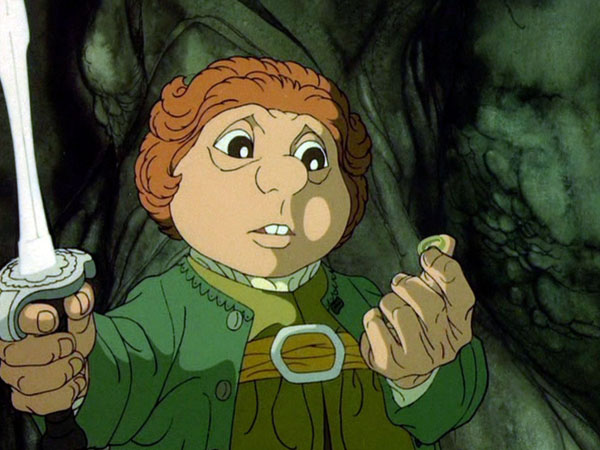Arthur claims a sword from the Lady of the Lake: the magical “cut-steel”, Excalibur. Bilbo burgles a simple golden ring, whose magic will change the face of Middle-Earth.
What are we talking about? The glint of treasure: finding items on your quests.
Treasure is one of the oldest traditions in the fantasy genre and, with it, of RPGs. From 1st Edition AD&D’s extensive random treasure tables, all the way to World of Warcraft’s set items, crafting, and party treasure divvying options, loot has been a major component of the fantasy RPG experience from the get-go. And so Conclave’s lack of found items stands out like something of a sore thumb.
After the Kickstarter, we plan to finally add found treasure to Conclave. However, we will be doing it in our own way, reflective of our goals for the overall Conclave game experience.
1. There won’t be lots of it.
Many RPGs hand out tons and tons of loot, most of it junk. They provide so much of it, in fact, that they have to provide ever-bigger backpacks and stashes, hotkeys for rapid selling, color-coded rarities, even pets that can be ordered back to town to do your treasure-selling for you.
For a realtime RPG, this can be a good approach. If, in your game, players are offing monsters fast enough to measure the results in KPM (Kills Per Minute – if not Per Second), then you have a lot of opportunities to drop treasure if you see fit. Indeed, you can make loot collection one of the primary purposes of your game.
Conclave operates on a different time scale, more deliberate and drawn out; for some parties, a combat may take a week or more to complete. We also shoot for a more realistic approach to the existence of treasure in the world: our hob raiders are not treasure piñatas, ready to burst into piles of kneesocks of bravery and +5 armored pantaloons of volcanic wading. For both these reasons, we don’t expect to be dropping items left and right.
Instead, finding treasure should feel special and unusual in Conclave, like it does in a good genre movie or book. This is not to say that we want to leave you feeling deprived, starved for treasure, just that it shouldn’t either be an everyday occurrence in your characters’ lives. It also means you shouldn’t be carting around boatloads of it to sell at some fictional shop with bottomless coffers.
2. Make treasure fit your characters’ needs.
What happens in a game when a party finds a valuable item, and it’s not really right for anybody in the party?
First, the party has to spend time figuring that out in the first place. This takes time. Then they need to find somebody to whom to sell or trade the item. After that, they have to figure out what to do with the cash or item that they received. Do they share the cash? Create a party stash? If they receive another item, who gets that? And so on.
What happens in a game when the party finds a valuable item, and it’s useful for more than one character? Now we get into the wonderful world of divvying up treasure, and trying to make sure that everybody feels like they got an equal share of what was found (which almost never happens).
With Conclave, we want to try something different, which is to make sure that characters get items that are pretty obviously good for them. We don’t want you to have to spend aggravating time arguing over who gets what, or trying to figure out what do with an item nobody wants. Will this be as realistic as giving players awkward treasures? No – but realism is not the only thing we are going for. We also want you to feel excited about the direction your characters’ equipment is going, to feel like it is part of the story, and not feel either like it’s something you must worry about overmuch.
3. Managing treasure won’t become a primary activity.
Ultimately, we don’t want Conclave to be all about the treasure. There are plenty of other games that do a great job of making treasure the focus of play. With Conclave, however, we are aiming for a distilled approach to the whole tabletop roleplaying experience. We want to deliver you the best of tactical combat, the best of group decisions, the best of storytelling, the best of socialization – and the best of treasure. In each case, we give you a focused version of the experience, and one that does not require you to devote more time to it than you need to. This is part of how we keep Conclave flexible, and convenient, a game you can play any time and any place you want.
By making treasure both unusual and well-tailored to the characters in your party, we distill the treasure experience in the game to its fun essentials, and avoid wasting your time. When you receive an item, you’ll know it’s worth paying attention to. You may or may not make use of it; that’s fine. But you know you won’t be bothered with supposed “treasure” that is ultimately just dross.
We’re intentionally staying away from more specifics in this post. We want to save some surprises, and still have a number of details to work out for ourselves. But we hope this exploration gives you a sense of the philosophy we are applying to the presence of treasure in Conclave, and how it fits into our larger goals for the game.


looks great Derek. Keep up the good work. I love that hobbit cartoon. I still have my 12 cassette version of the Lord of the Rings in the brown case.
xadf1n
lmoguf
f9oohi